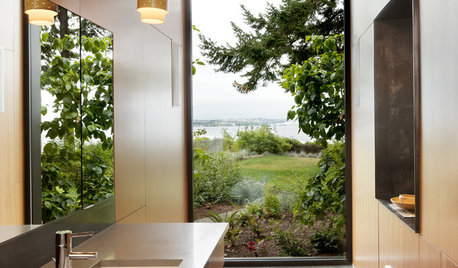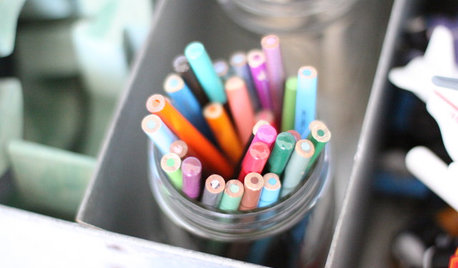Homesteading in Maine 101- tips please!
annabananaandfamily
12 years ago
Related Stories

REMODELING GUIDES10 Tips to Maximize Your Whole-House Remodel
Cover all the bases now to ensure many years of satisfaction with your full renovation, second-story addition or bump-out
Full Story
DECLUTTERINGDecorate with Intention: Clutter Clearing 101
Fearlessly face disorganized areas to find the home of your dreams
Full Story
DECORATING GUIDESDecorating 101: How to Use White Right
If you’ve ever been in white-paint-swatch limbo, you know white can be tricky to work with. Here’s how to get the fresh look you’re after
Full Story
DECORATING GUIDESDecorating 101: How to Start a Decorating Project
Before you grab that first paint chip, figure out your needs, your decorating style and what to get rid of
Full Story
KITCHEN CABINETSCabinets 101: How to Choose Construction, Materials and Style
Do you want custom, semicustom or stock cabinets? Frameless or framed construction? We review the options
Full Story
MOST POPULARDecorating 101: How Much Is This Going to Cost Me?
Learn what you might spend on DIY decorating, plus where it’s good to splurge or scrimp
Full Story
HOUSEPLANTSHow to Grow Orchids Indoors
Orchids are the exotic aristocrats of the flower world and can make themselves comfortable in almost any home
Full Story
FURNITUREDecorating 101: How to Shop for Furniture
Learn what furniture to get rid of, what to look for when buying, and how to avoid mistakes
Full Story
KITCHEN STORAGECabinets 101: How to Get the Storage You Want
Combine beauty and function in all of your cabinetry by keeping these basics in mind
Full Story
COLORDecorating 101: How to Choose Your Colors
Learn where to look for palette inspiration — and one commonly advised place maybe you shouldn’t
Full StorySponsored






doninalaska
brendasue
Related Professionals
Edmond Landscape Architects & Landscape Designers · Tempe Landscape Architects & Landscape Designers · Bound Brook Landscape Contractors · Cincinnati Landscape Contractors · Hannibal Landscape Contractors · Pleasanton Landscape Contractors · Red Oak Landscape Contractors · Secaucus Landscape Contractors · Waterford Landscape Contractors · Irvington Landscape Contractors · North Aurora Landscape Contractors · Raytown Landscape Contractors · Cedar Rapids Siding & Exteriors · Germantown Siding & Exteriors · Rockford Siding & Exteriorsbrendasue
GeraldC